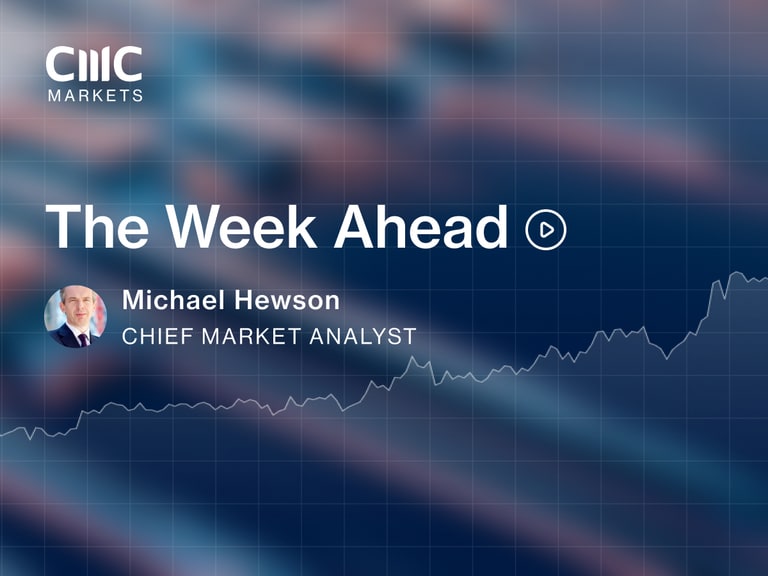Here’s our pick of the top three economic and company events in the week commencing Monday, 5 February:
RBA interest rate decision
Tuesday 6 February: The Reserve Bank of Australia in December left its benchmark interest rate unchanged at 4.35%, having raised the cash rate by 25 basis points in November. At the December meeting, the central bank said that, while inflation was easing for many goods, price growth in the services sector was still high – a trend that has played out in many countries. RBA governor Michele Bullock, whose stance on monetary policy appears to be mainly based on domestic price pressures, has given little indication that a change in policy is imminent. Many observers therefore expect a rate hold this month. However, on Wednesday it emerged that Australia’s consumer price index rose 4.1% in the fourth quarter of last year, easing from 5.4% in Q3, which could focus attention on when the RBA might start cutting rates.
BP Q4 and full-year results
Tuesday 6 February: Shares of BP fell 2% last year, in contrast to a 10% rise in shares of rival Shell. Investor sentiment towards BP remains mixed, partly because of fines and payments for the company’s role in the Deepwater Horizon oil spill in 2010, but also because of the departure of CEO Bernard Looney in September over his failure to disclose details of past relationships with colleagues, the subsequent exit of US boss David Lawler, and concern over the transition towards renewables In October BP’s share price fell sharply after a miss on Q3 profits, then in January the shares fell to 441p – their lowest level since October 2022. In Q3, profit came in at $3.3bn, well short of expectations of $4.05bn, amid underperformance in the gas and low carbon energy division. Profits there slid on a quarterly basis to $1.25bn, partly due to a $540m charge linked to BP’s joint US offshore wind project with Equinor. In the oil production and operations unit, profit increased from Q2 to $3.13bn. However, both oil and gas profits were down sharply on an annual basis in Q3 due to lower commodity prices. Expectations for Q4 have been tempered by a further slide in gas prices and disruption in the Red Sea, which is likely to have increased BP’s costs as it suspended transits through the Suez Canal in December. In its Q4 guidance, BP said it expected upstream production to be broadly flat compared to Q3, and that it expects lower volumes and pressure on refining margins. At the same time, there is shareholder disquiet over BP’s “performing while transforming” policy, which incoming CEO Murray Auchinloss plans to maintain. That’s despite London-based activist investor Bluebell Capital having written to the BP board, criticising the pledge to reduce oil and gas production by 25% from 2019 levels as “irrational”. Competitors Exxon Mobil and Chevron haven’t committed to such pledges, while Shell has ditched a similar target. For now, BP seems set on sticking with the policy, though that could change if management fails to deliver decent returns and the shares continue to underperform.
China inflation (January)
Thursday 8 February: With China’s economy experiencing deflation, pressure has been growing on the government to stimulate growth as well as demand. Producer prices have fallen year-on-year in every month since October 2022, peaking with a 5.4% decline in June last year. In December, producer prices were down 2.7% year-on-year. Meanwhile, consumer prices fell 0.3% in the year to December, a slight improvement on November’s 0.5% decline, though estimates for January suggest deflation remained at 0.3%. In response, China’s central bank plans to relax reserve requirement ratios from 5 February. However, it is likely that policymakers will need to do more to galvanise the economy in the coming weeks, probably after the Chinese New Year holiday period, which runs from 10-15 February.
Here's our pick of the week's other notable economic and company events:
Services PMIs (January)
Mon 5 Feb: The recent flash purchasing managers’ index (PMI) numbers highlighted a divergence between service-sector activity in Europe – there were slowdowns in Germany and France – and the UK, where the reading rose to 53.8, its highest level since last May. In France service sector activity slowed to 45 in January, down from 45.7 a month earlier and the lowest reading since September. In Germany we also saw a slowdown to 47.6 in December, down from 49.3 in November, increasing the pressure on the ECB to consider bringing forward the timing of its first interest rate cut. Economic activity in Spain and Italy has been much more resilient. Spain’s service sector PMI was 51.5 in December, while Italy’s was 49.8. The US has also proved to be more resilient, with its S&P Global services PMI rising to 52.9 in January and the ISM reading rising to 51.7.
Vodafone Q3 results
Mon 5 Feb: Last year the Vodafone share price slid below its 2002 lows to levels last seen in the late 1990s as investors hung up on new CEO Margherita Della Valle’s plans to turn the ailing business around. We have seen a modest rebound since December after it was reported that Iliad’s €10.5bn bid for Vodafone’s Italian business could be back on – almost two years after Vodafone rejected an offer of €11bn. The latest bid included an option for Vodafone to retain 50% of the share capital in the new company, along with a €6.5bn cash payment. However, Vodafone has rejected this latest bid, even though the telecoms company has been looking to offload its Italian business for some time, with few suitors on the horizon besides Iliad. The rejection of the latest offer makes one question Vodafone’s decision-making with regard to its underperforming Italian business. The company secured a deal last year to sell its Spanish business to Zegona for €5bn, as CEO Della Valle looked to focus on the UK business. More recently, Vodafone announced a 10-year, $1.5bn deal with Microsoft to integrate generative AI into its services for its 300m customers. For Q3 total revenue is expected to come in at €11.1bn, down from last year’s €11.6bn, with most of the drop attributable to Vodafone’s Spanish and Italian businesses. The UK and Germany businesses are expected to see a modest improvement from last year at €1.8bn and €3.35bn, respectively.
Palantir Technologies Q4 results
Mon 5 Feb: Palantir shares performed strongly last year as the company’s government business and demand for AI helped boost the balance sheet. In Q3 revenue came in at $558.2m, with profit of $0.07 a share. Revenue guidance was $599m to $603.2m for Q4, and $2.22bn for the full year. This guidance helped to push the shares up to two-year highs in November last year, although they have since slipped back. Although the company is heavily reliant on US government contracts, it has managed to reduce this dependency. But more needs to be done to diversify its revenue streams improve profitability. The company has been developing its AI solutions and further upside is possible, especially if the company gets included in the S&P 500 after CEO Alex Karp said the business is now eligible to join the main US blue-chip index.
Uber Q4 results
Wed 7 Feb: The Uber share price has more than doubled in the last 12 months, reaching a record high of $67.75 today (2 February). Investors are hopeful that the business might return an annual profit for the first time in its history. Uber posted a net loss of $9.1bn for 2022. The upcoming results are expected to show that full-year revenue came in at $36.5bn to $37.5bn, up from $31.8bn a year earlier. Adjusted EBITDA is expected to be $1.18bn to $1.24bn. For Q4, revenue is expected to rise to $9.78bn, up from $9.3bn in Q3, with total gross bookings expected to increase to $37.1bn. Mobility is forecast to bring in $19bn and delivery is expected to contribute $16.7bn. Q4 profit is expected to come in at $0.17 a share, pushing full year profit to $0.39 a share.
Disney Q1 results
Wed 7 Feb: The Disney share price has made a modest recovery from the nine-year intraday low of $78.73 it sank to on 4 October last year. When the company reported its Q4 results, investors were wondering whether returning CEO Bob Iger would be able to stem losses in Disney’s streaming business, Disney+, and cut costs in other areas. The previous management team had focused on subscriber numbers over profitability, in the hope that the Disney brand could squeeze Netflix’s market share. The failure to do so led Iger to increase subscription prices, resulting in a sharp decline in subscriber numbers last year. Contrastingly, Netflix continued to grow its subscriber base. After losing a combined 15.7m subscribers across Q2 and Q3, Disney managed to stop the bleeding in Q4, when it added over 3.5m new subscribers. This pushed the total Disney+ subscriber base back above 150m, which helped lift streaming revenue to $5bn in Q4. Losses in the streaming business decreased to $387m in Q4, a significant improvement on the $1.4bn loss in the year-ago quarter, helped by the addition of Guardians of the Galaxy 3 and the new Star Wars series Ahsoka. For the company as a whole, Q4 revenue came in at $21.24bn and profit was $0.82 a share. The parks business saw revenue increase 13% to $8.16bn, mainly due to an increase in ticket prices and higher attendance, though higher costs were a challenge. In response Iger committed to cutting another $2bn worth of costs, taking total cost savings to $7.5bn. For Q1, revenue is expected to come in at $23.8bn, with a profit of $1 a share.
Arm Holdings Q3 results
Wed 7 Feb: Shares of UK-based semiconductor company Arm Holdings closed their first day of trading on the Nasdaq at $63 in September, before slipping below $50 ahead of their Q2 results in November. When the company came to market its Q1 figures showed a loss of $65.5m. In Q2 revenues came in much better than forecast at $806m, well above the $745m consensus, while profits came in at $0.36 a share, though on a net basis the company slid to a loss of $110m due to $500m in costs and compensation related to the IPO. For Q3 Arm’s guidance was disappointing, projecting sales of between $720m and $800m and earnings of between $0.21 and $0.28 a share, which sent the shares lower. This decline didn’t last, though, with the shares enjoying a solid rebound before trading at record highs just shy of $80 in January. Arm generates most of its revenues from licensing its IP to mobile device and other electronic device sales, which means its revenue is largely dependent on the ebb and flow of the broader economy. That said, the development of AI chips could help its growth potential, given that the likes of Alphabet and Nvidia are using Arm IP to develop their AI chips.
Unilever full-year results
Thu 8 Feb: Unilever shares have underperformed over the last year, falling more than 10% from their 2023 peaks. Last month the shares hit 18-month lows. This weakness appears to be based on investor concerns over margins as consumers become ever more price-sensitive and supermarket own brands become more popular. Issues in the Red Sea are also adding to transport costs. The company has been able to raise prices – but perhaps not by as much as management would like. As a result market share has fallen in areas such as ice cream (down 141bps in Q3). In Q3 underlying sales grew 5.2% to €15.2bn, although volumes declined by 0.6%. The company maintained its guidance on full-year underlying sales growth of more than 5%, while also announcing the sale of Dollar Shave Club, although it will retain a 35% minority shareholding. New CEO Hein Schumacher will come under pressure to arrest the slide in the share price, and may introduce further measures to protect shareholder value. There is already an uneasy alliance with Ben & Jerrys management over political activism, which could translate into a decision to offload the business.
INDEX DIVIDEND SCHEDULE
Dividend payments from an index's constituent shares can affect your trading account. View this week's index dividend schedule.
SELECTED COMPANY RESULTS
| Monday 5 February | Results |
| Caterpillar (US) | Q4 |
| Estee Lauder (US) | Q2 |
| Loews (US) | Q4 |
| Palantir Technologies (US) | Q4 |
| Porvair (UK) | Full-year |
| Vertex Pharmaceuticals (US) | Q4 |
| Vodafone (UK) | Q3 |
| Tuesday 6 February | Results |
| Amcor (US) | Q2 |
| BP (UK) | Full-year |
| Chipotle Mexican Grill (US) | Q4 |
| Eli Lilly (US) | Q4 |
| Ford (US) | Q4 |
| Gilead Sciences (US) | Q4 |
| Hertz Global (US) | Q4 |
| Linde (US) | Q4 |
| Mattioli Woods (UK) | Half-year |
| Renishaw (UK) | Half-year |
| Snap (US) | Q4 |
| Willis Towers Watson (US) | Q4 |
| Wednesday 7 February | Results |
| 23andMe (US) | Q3 |
| Arm Holdings (US) | Q3 |
| Ashmore (UK) | Half-year |
| Barratt Developments (UK) | Half-year |
| CVS Health (US) | Q4 |
| Equifax (US) | Q4 |
| Fox (US) | Q2 |
| GoPro (US) | Q4 |
| Mattel (US) | Q4 |
| New York Times (US) | Q4 |
| News Corp (US) | Q2 |
| PZ Cussons (UK) | Half-year |
| Uber Technologies (US) | Q4 |
| Walt Disney (US) | Q1 |
| Yum! Brands (US) | Q4 |
| Thursday 8 February | Results |
| AstraZeneca (UK) | Full-year |
| British American Tobacco (UK) | Full-year |
| ConocoPhillips (US) | Q4 |
| Duke Energy (US) | Q4 |
| Dynatrace (US) | Q3 |
| Expedia (US) | Q4 |
| Harley-Davidson (US) | Q4 |
| Hershey (US) | Q4 |
| Philip Morris International (US) | Q4 |
| Pinterest (US) | Q4 |
| Ralph Lauren (US) | Q3 |
| Redrow (UK) | Half-year |
| S&P Global (US) | Q4 |
| T Rowe Price (US) | Q4 |
| Under Armour (US) | Q3 |
| Unilever (UK) | Full-year |
| VeriSign (US) | Q4 |
| Warner Music Group (US) | Q1 |
| Friday 9 February | Results |
| PepsiCo (US) | Q4 |
Note: While we check all dates carefully to ensure that they are correct at the time of writing, company announcements are subject to change.
Disclaimer: CMC Markets is an execution-only service provider. The material (whether or not it states any opinions) is for general information purposes only, and does not take into account your personal circumstances or objectives. Nothing in this material is (or should be considered to be) financial, investment or other advice on which reliance should be placed. No opinion given in the material constitutes a recommendation by CMC Markets or the author that any particular investment, security, transaction or investment strategy is suitable for any specific person. The material has not been prepared in accordance with legal requirements designed to promote the independence of investment research. Although we are not specifically prevented from dealing before providing this material, we do not seek to take advantage of the material prior to its dissemination.





